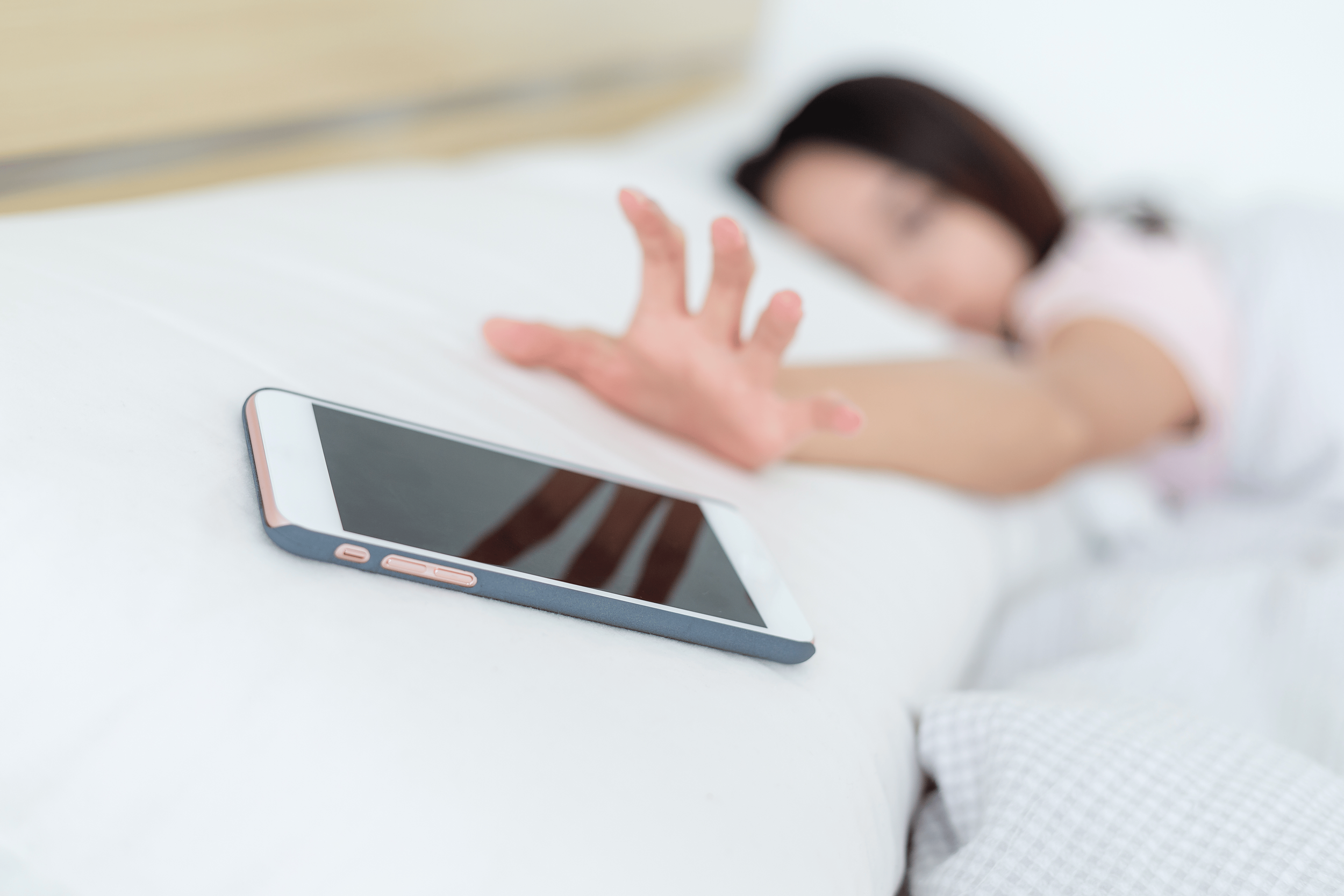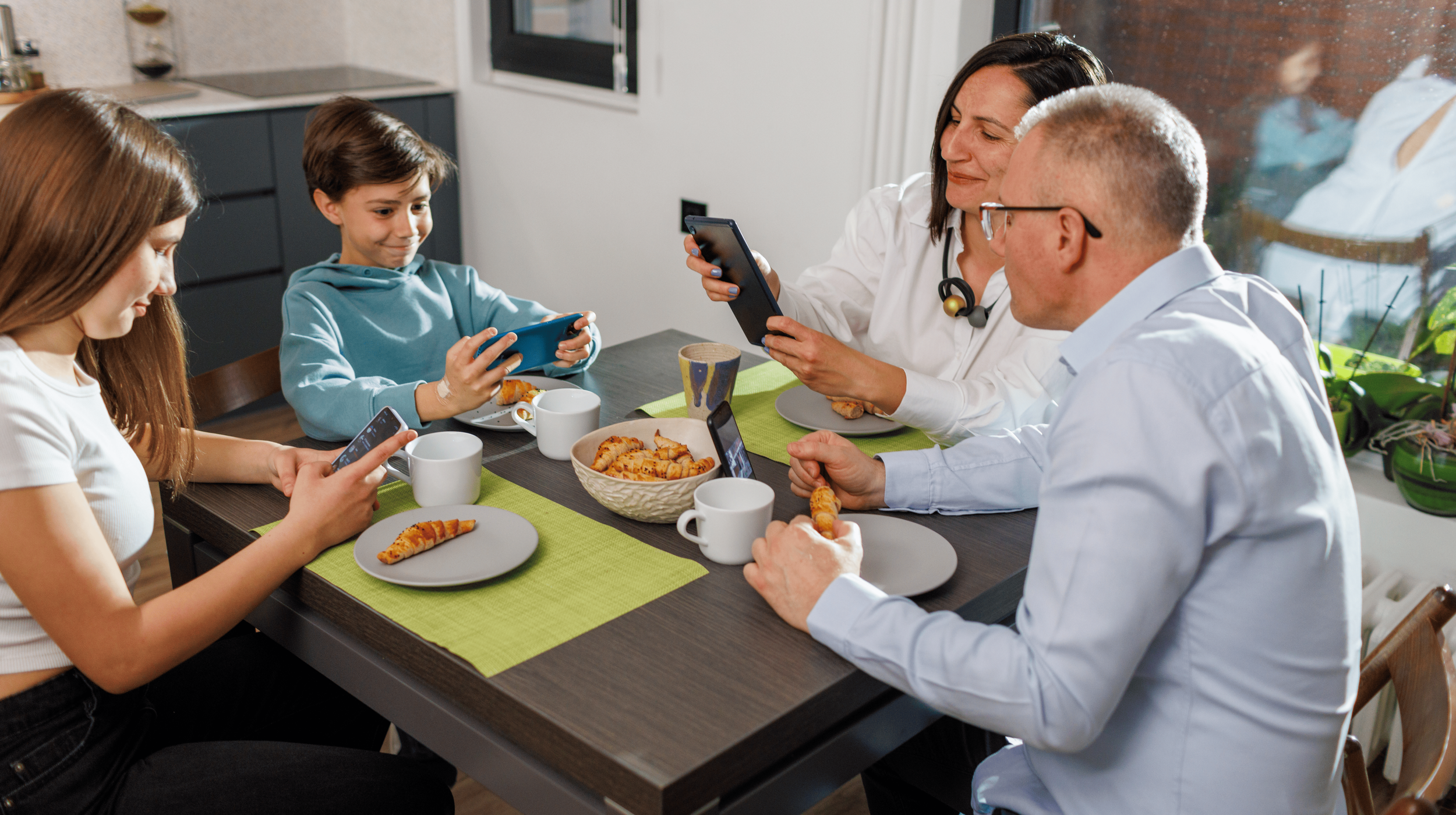When your phone is the first thing you reach for, even before opening your eyes, it may be a sign that technology is running the show.
Okay, real talk (or text): we all love our phones. And computers, tablets, and any other electronic devices I’ve left out. They tell us when our friend liked that vacation photo from three years ago, what's up next on our calendar, and when it’s time to stand up because shockingly, we’ve been sitting for way too long. Technology is amazing, isn’t it?
Until it’s not.
Most of us don’t even notice when scrolling turns into doomscrolling, or when “just one more email” becomes hours of screen time that leaves us feeling fried instead of fulfilled. The thing is, I’ve never heard a single person say they wished they spent more time on their devices. In fact, I’ve heard the exact opposite from everyone I’ve ever had the screen time conversation with.
Reality is, we're spending more time than we want to on devices. Either because it’s required for work or we get sucked into the news cycle, social media, gaming, or all the other stuff we can do online. And it’s tricky because we “need” to be on them. Not need like food, water, air, shelter, clothing, and real-life human connection, but it’s become such a big part of modern society, it’s hard to eschew them completely. Most jobs require some sort of technology, and a lot of communication happens through our devices.
When screen time replaces mealtime connection, technology can quietly take priority over what matters most.
But too much time spent on devices comes at a cost to our mental and physical health and well-being. Increased depression, anxiety, overwhelm, apathy, weight gain, eye problems, and more. It also gets in the way of other (dare I say more!) fulfilling life activities. Time spent with family and friends in person, physical activities, being in nature (not just to take a selfie for the gram), creating with our own minds and bodies. All the things that help us feel more deeply connected to ourselves, others, and the larger world.
So, how do you know if you’re simply enjoying the benefits of modern tech, or if you might be overusing it (or dare we say, addicted)? Let’s break it down.
Signs You Might Be Overusing Technology
1. Your Screen Time Report Makes You Gasp
If your weekly screen time report feels like it’s outing you in front of your mom, boss, and therapist all at once, it might be worth taking a closer look. No shame, just awareness.
2. Phantom Buzzes Are Your New Normal
Ever felt your phone vibrate… only to realize it didn’t? That’s your brain playing tricks on you, craving the dopamine hit of notifications.
3. The First Thing You See in the Morning Isn’t the Sun
If your phone gets more eye contact than your partner, pet, or actual window, it may be time to rebalance.
4. Your “Breaks” Don’t Actually Feel Like Breaks
Too much screen time can leave us tired, stressed, and disconnected, even when we don’t notice it happening.
Scrolling is not actually resting. Sure, it feels like an escape, and maybe sometimes it is, but if you’re often you’re left feeling more drained than when you started, it might be time for a true, rejuvenating break.
5. FOMO Hits Hard
Do you check your phone every five minutes to make sure you’re not missing out? That constant pull could be a sign your device is running the show.
Why Technology is So Hard to Put Down
Here’s the thing: it’s not your fault. Tech companies intentionally design apps and platforms to keep us hooked. Dopamine spikes, endless scrolls, bright colors and notifications, they all hijack our nervous system. Anything else this addictive would be regulated (I think), but since it isn’t yet, it’s up to us to manage ourselves. Knowing this can help you approach your tech use with more compassion (and mindfulness).
Mindful Questions to Ask Yourself
Instead of judging your habits, try getting curious. Ask:
How do I feel before, during, and after screen time? Energized, inspired… or anxious and drained?
Is my use intentional or automatic? Did I choose to open Instagram, or was it muscle memory?
What am I avoiding? Sometimes constant scrolling is a way to dodge boredom, tough feelings, or uncomfortable silence.
Even in the middle of workplace chaos, mindfulness can help us reset our relationship with technology.
The Takeaway
Technology isn’t the enemy. When it comes down to it, it’s simply a tool. But like any tool, it works best when we use it on purpose instead of letting it use us. By noticing how it affects your body, mind, and relationships, you can decide when it’s helping and when it’s quietly stealing your time.
So, subscribe to A Mindful Minute (our weekly mindfulness practice reminder) to be notified when the next part of this 3-part series on Mindful Technology Use comes out. Part 2 will focus on small shifts to make for healthy technology use.
Until then, the next time you pick up your phone, ask yourself: Am I in charge right now, or is my phone?
That tiny pause is the beginning of mindful tech use, and trust me, it feels way better than phantom buzzes.
Written by Amanda Stemen, MS, LCSW




